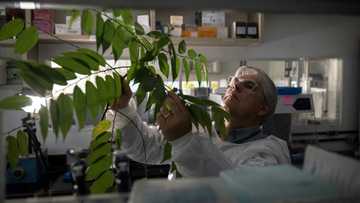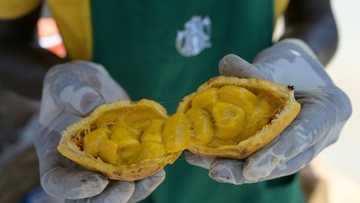What is coconut: a fruit, a nut, a seed, a vegetable, or a legume?
You have probably heard about a pack of benefits a coconut carries. Some of these benefits include enriching your diet with essential nutrients, burning fat in your body and improving skin hydration. Additionally, its oil is used for cooking and hair care. But is coconut a fruit, nut, or seed? What is its composition? Learn more about it in the article.
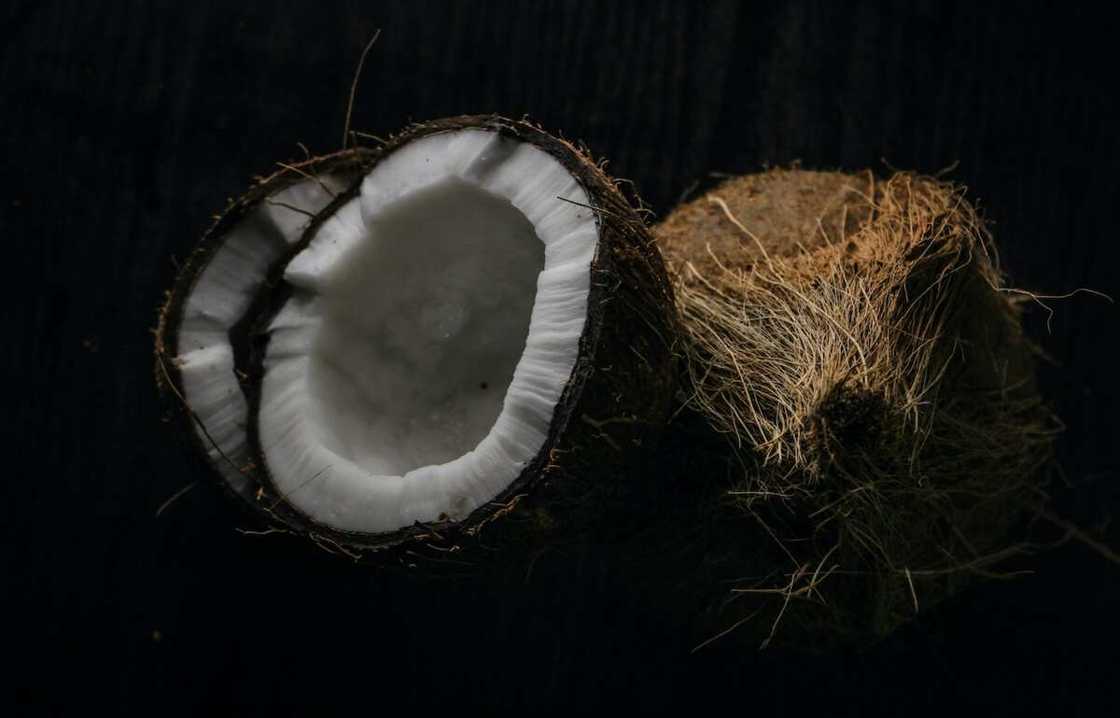
Source: UGC
There is no definitive way to tell whether a coconut is a fruit, nut, seed, or vegetable. However, approaching its composition botanically can help in classification and understanding. Therefore, while plant categorising is a complex topic and a matter of personal choice, here is a quick insight into what coconut is and is not.
What is a coconut considered?
Coconut is a 16th-century word derived from the Portuguese and Spanish term "coco", which means "skull" or "head". The palm product got the 'hard" name due to the uncanny similarity of its three indentations with the features of a human head.
It also belongs to the Arecaceae (palm) family, and besides its ubiquitous availability in different tropical and subtropical regions, its parts can be used for various purposes.
According to Odoardo Beccar, a 20th-century palm scientist, coconut is an Old World plant that originated in the Indian Archipelago or Polynesia (Indo-Malaya). That explains why more palm varieties exist in the Eastern hemisphere than in the Western hemisphere.
It has different uses during its maturity phase. For instance, it can be harvested for drinking when unripe. However, as it ripens, its endosperm layers are deposited on the walls to make edible flesh. Is coconut a nut or a fruit? Learn more about its botanical classification below.
Coconut as a fruit
What makes it a fruit is the general definition of a fruit. The fruit grows from a seed while the seed is still in its mature structure. That means the inner seed will sprout when it is soaked in water, and another coconut (fruit) will grow. Therefore, it is a fruit, though it is wise to state which kind of fruit.
Botanically, it is a fibrous one-seeded drupe fruit known as a dry drupe. A drupe is a fleshy part enclosed in a hardened outer part that covers a seed. The drupe fruits such as coconut, mangoes, and peaches have three parts:
- The exocarp (the outer hardened part)
- The mesocarp (the middle fleshy part)
- The endocarp (the hard part covering the seed)
Coconut as a seed
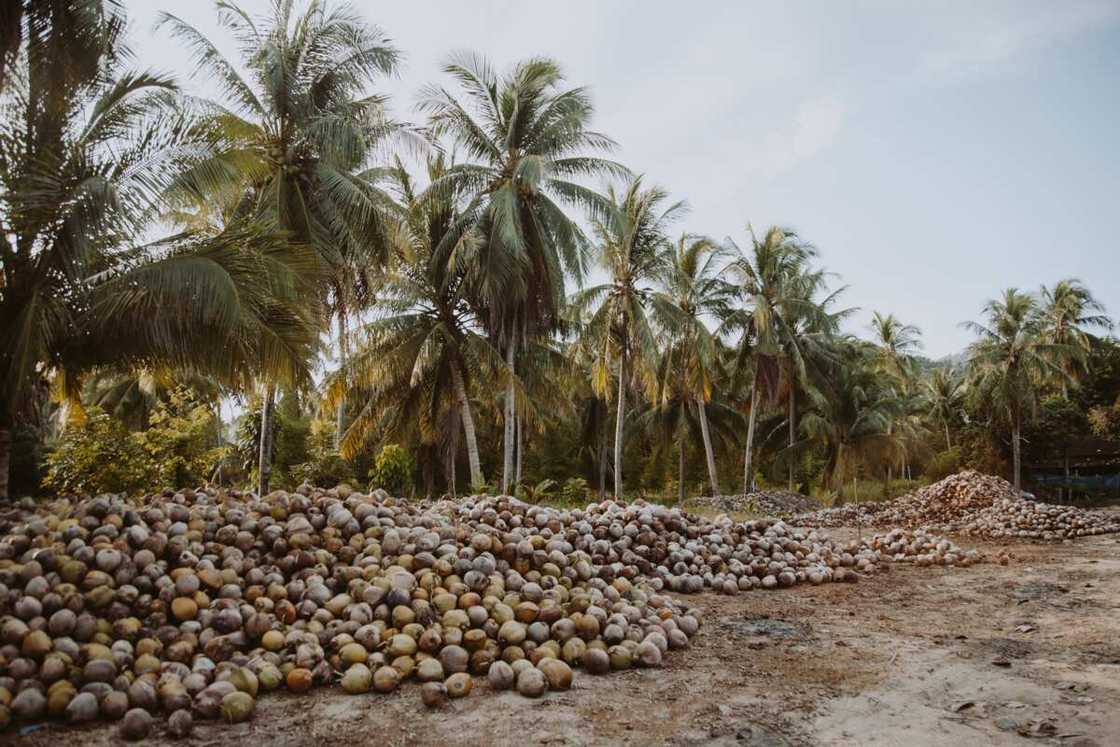
Source: UGC
Another confusing fact is whether a coconut is a seed or not. From the basic understanding of reproduction, a seed is a "baby" (reproductive) part of a flowering plant that produces a fruit upon maturity. The "baby" part has the embryo root (hypocotyl) and the embryo leave (epicotyl).
It means a seed will grow into a plant when planted, watered, and well-supported. The logic applies to the plant too.
At one end of the coconut, three pores (eyes) allow the embryo leaves to shoot out from one hole, especially after germinating and feeding on the thick white flesh (mesocarp). The embryo roots will eventually sprout out after overgrowing the shell, forming a young coconut seedling that can survive in the soil. The seedling can develop into a new palm tree with enough water.
Is coconut a nut?
Interestingly, most people know coconut as a nut because of its name, which has "nut" at the end. Are coconuts nuts? The plant is a one-seeded fruit that can grow into a new plant on maturity. However, unlike corn, coconut is not a true nut but a tree nut.
True nuts are indehiscent and release the seeds when the fruits decay or undergo digestion after being swallowed by the animals. In contrast, tree nut does not need to go through these processes. Instead, the seed can sprout through the hole to form a seedling.
Is coconut a legume?
Botanically, legumes are Fabaceae plants, fruits, or seeds. Since legumes can fall under all three classifications of plants, it means they have all the characteristics of this plant. However, it is also vital to state that coconut is not a legume since legumes are grown agriculturally for human and animal consumption.
Is a coconut a berry?
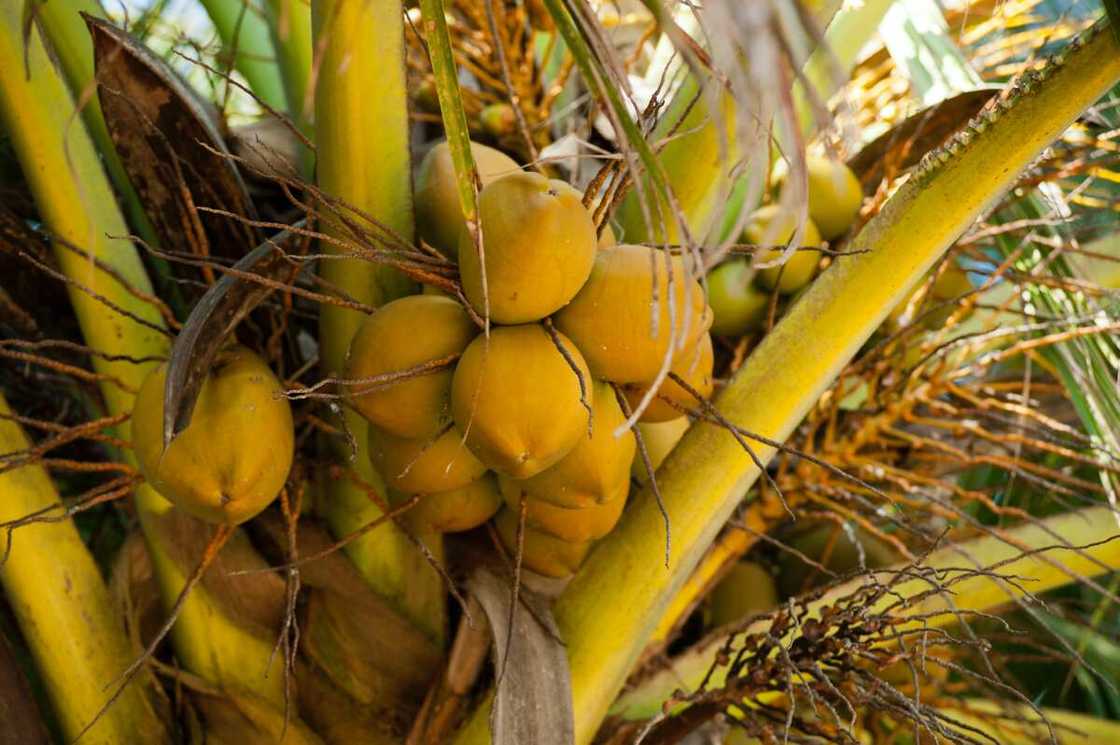
Source: UGC
Although it is mostly classified botanically as a fruit, some people also compare it to berries such as blackberries, raspberries, and blueberries. Generally, berries are drupes that contain aggregates of drupelets.
It can be a berry or fruit, depending on the botanical or culinary definition. However, there is no conclusive answer because coconut and berries are all one-seeded drupe fruits.
Is a coconut a fruit or vegetable?
While both botanical and culinary definitions of coconuts may seem complicated, one thing is apparent it is not a vegetable. Vegetables are edible parts of plants that do not contain the seeds they grew from, unlike coconut, which is a fibrous one-seeded drupe.
Is coconut a fruit, nut, or seed? The debate on whether coconut is a fruit, seed, or nut can go on forever without a conclusion, especially when approached with a botanical sense. However, it is easier to categorize it based on loose definitions because it comprises all the features present in fruits, seeds, and nuts.
Legit.ng recently published an article about plants that don't need sun. These plants thrive in a dimly lit corner of a room and require minimum upkeep. They bring nature's beauty and tranquillity into your indoor and outdoor spaces.
Houseplants have several benefits, such as they boost your respiratory health, enhancing beauty in your home and purifying the air by absorbing pollutants. Some of these include snake plants, pothos, haworthia and aloe vera.
Source: Legit.ng

